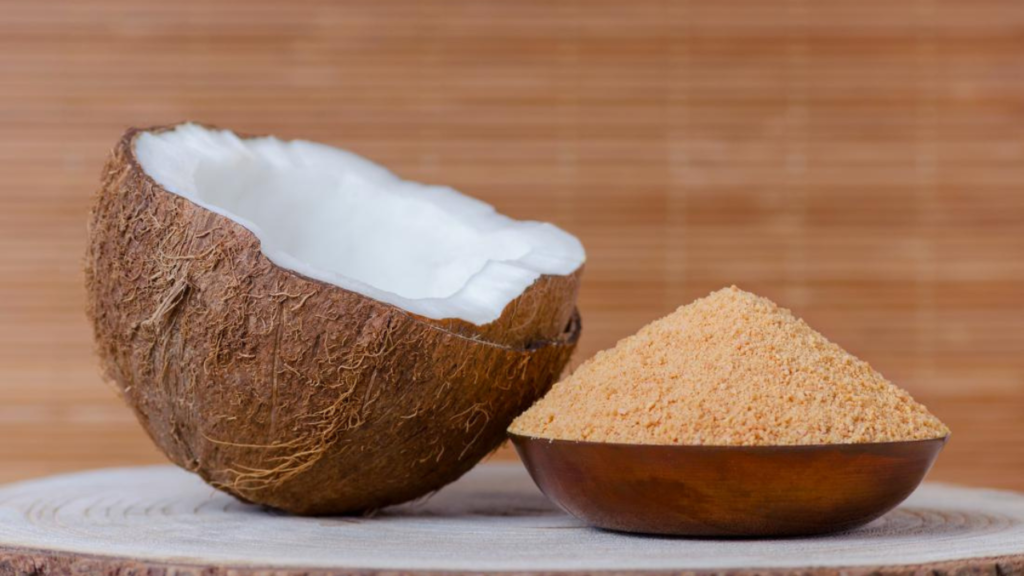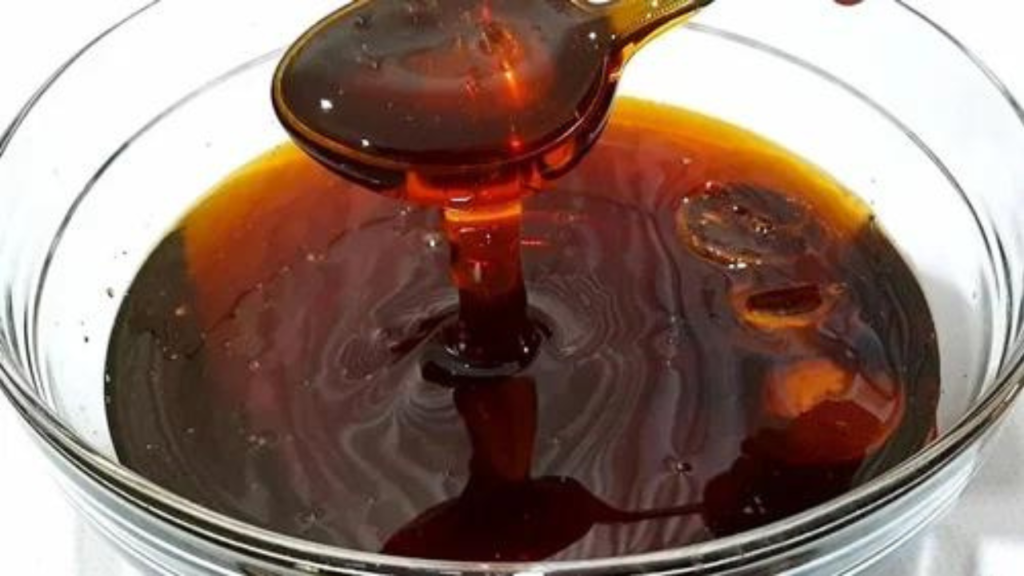White sugar which is granulated in appearance is also known as table sugar and is used widely in day-to-day routine. It is a form of refined sugar obtained from sugar cane. It contains natural carbohydrate called as sucralose which is broken down in the body to make glucose. This is the same glucose which if found on a higher side in blood can lead to diabetes. So, it is evident that one needs to limit the intake of this sugar. With an increasing focus on healthier alternatives to refined sugar, alternate options like coconut sugar, date sugar, and liquid jaggery have gained popularity. In this blog, our expert nutritionist will throw light on different healthy alternatives and which individuals can use which of these alternate options.
What is Coconut Sugar?

Coconut sugar is derived from the sap of the coconut palm tree. It has a lower glycemic index (GI) compared to regular sugar, meaning it causes a slower rise in blood glucose levels. Hence, it is a very good option for ones seeking fitness and unable to do away with sugar. However, ones with diabetes need to keep in mind that inspite of the low GI, coconut sugar contains same calories as that in white sugar; hence it should be preferred in mooderation (less quantity and lesser frequency)
Coconut sugar contains small amounts of minerals like iron, zinc, calcium, and potassium, as well as antioxidants. This property is again great for fitness enthusiasts as well as for ones with diabetes. However, patients with diabetes and heart disease or diabetic kidney disease or chronic kidney disease should avoid it as coconut sugar may increase their potassium. To know more about tips to control dietary potassium, click here
What is Date Sugar?

Date sugar is made from dried dates that are ground into a fine powder. It is less processed and retains the fiber and nutrients found in whole dates. It alsoo contains vitamins and minerals such as potassium, magnesium and antioxidants. The fiber in date sugar helps slow the absorption, leading to less spikes in blood glucose levels. Hence, it is a great option for fitness seekers. But the downside for diabetic individuals is that date sugar can increase the blood sugars in a similar manner to white sugar as it is high in glycemic index. Hence, it may be preferred in moderation after consulting your Nutritionist.
However, date sugar should nt be preferred if you have either diabetes and heart disease or diabetic kidney disease or chronic kidney disease as it can elevate the level of potassium which can lead to dangerous outcomes. To know more about low potassium foods for kidney disease, click here
What is Liquid Jaggery?

Liquid jaggery, also known as “kakvi” in some regions, is a natural sweetener made from sugarcane juice or palm sap. It is less refined than regular sugar and retains some nutrients. Liquid jaggery contains minerals such as iron, magnesium, and potassium. It has a slightly lower glycemic index compared to regular sugar, which may be beneficial for blood sugar management. Hence, this option is again great for fitness enthusiasts, individuals seeking weight loss, or even women seeking to stay healthy as jaggery contains iron.
However, as this liquid jaggery is calorie-dense, it can lead to elevation of blood sugars. It is not comparable to low calorie artificial sweeteners. Hence, it should be used in moderation if you have diabetes. To know more about artificial sweeteners and its use in diabetes, click here. It should be avoided in individuals with either diabetes and heart disease or diabetic kidney disease or chronic kidney disease
When to use these alternative sugars?
Our expert Nutritionist suggests that these alternative sugars can be used in following health conditions:
- Childhood obesity
- PCOD or PCOS
- Hypothyroidism with obesity
- Obesity with high BP
- Obesity with high cholesterol or high triglycerides
- Obesity with sleep apnea
- Obesity with anemia
- Obesity with osteoporosis
- Obesity with vitamin and mineral deficiencies
- Post partum weight loss
Conclusion
Coconut sugar, date sugar, and liquid jaggery can be safer alternatives to refined sugar for people who are fitness enthusiasts or seeking weight loss. However, these options are not meant for daily use in individuals with pre-diabetes or diabetes and can be used in moderation. While they offer some nutritional benefits and have a lower glycemic index, they still contain sugars and calories that can impact blood glucose levels.
It isimportant to note that these options should not be preferred by individuals with either diabetes and heart disease or diabetic kidney disease or chronic kidney disease



